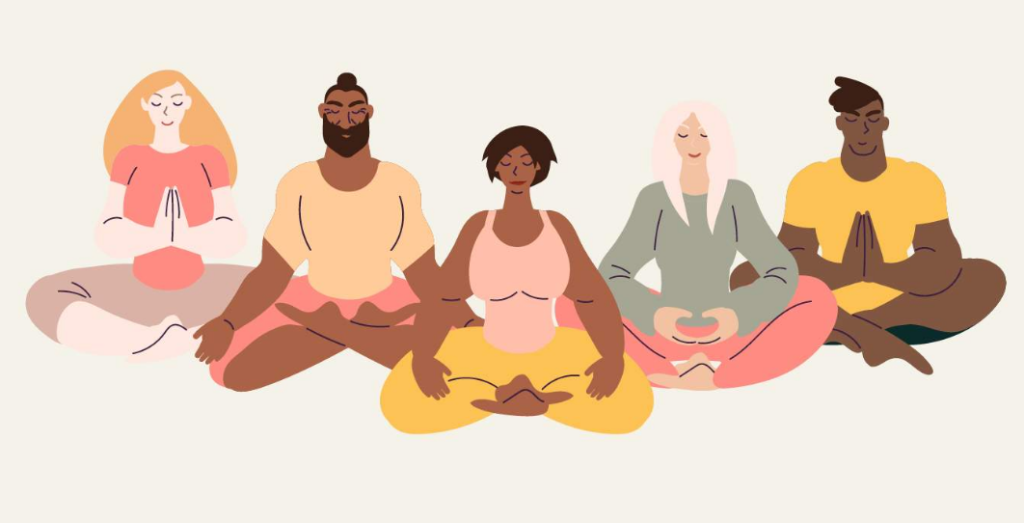Struggling to fall asleep or waking up tired? You’re not alone. Insomnia, racing thoughts, and poor sleep quality affect millions worldwide. The good news? Meditation for sleep is a simple, natural, and effective way to help your mind unwind and prepare your body for deep rest—no pills required.
In this blog, explore how meditation improves sleep, the best techniques for beginners, and how to create a soothing bedtime routine that actually works.
How Meditation Helps You Sleep Better
Meditation is more than just sitting still—it’s a mind-body practice that relaxes the nervous system, calms thoughts, and prepares your brain for rest.
Here’s how it helps:
- Reduces cortisol, the stress hormone that keeps you wired at night
- Slows heart rate and breathing, promoting relaxation
- Triggers melatonin, the hormone that signals your body it’s bedtime
- Stops overthinking, easing the mental chatter that prevents sleep
Best Meditation Techniques for Sleep
1. Mindfulness Meditation

Focus on your breath, bodily sensations, or sounds without judgment. This anchors your attention and helps you let go of stressful thoughts.
How to do it:
- Lie down comfortably
- Breathe naturally and slowly
- Focus your attention on each inhale and exhale
- Gently return your focus when the mind wanders
👉 Read more on Mindfulness from Mindful.org
2. Body Scan Meditation

This technique involves progressively relaxing each part of your body, helping release tension stored from the day.
How to do it:
- Start at your toes and move upward
- Bring gentle attention to each area
- If tension is felt, breathe into it and release
👉 Explore Body Scan on Headspace
3. Breathing Techniques (Pranayama)

Breathwork regulates your nervous system and lowers arousal levels, making it easier to fall asleep.
Try this:
4-7-8 Breathing
- Inhale for 4 seconds
- Hold for 7 seconds
- Exhale slowly for 8 seconds
- Repeat 4–8 times
👉 Harvard Health Guide to Breathing Techniques
4. Guided Sleep Meditations

Apps and platforms offer soothing audio tracks that guide your thoughts toward sleep and relaxation.
Recommended Apps:
- Calm – Sleep Stories & Meditations
- Insight Timer – Free Sleep Meditations
- Headspace – Sleepcasts & Wind-downs
Tips for Creating a Meditation-Ready Sleep Routine
- Turn off screens 30–60 minutes before bed
- Dim the lights or light a candle to create a calming atmosphere
- Diffuse lavender essential oil or use a sleep mist
- Play soft instrumental music or nature sounds
- Do light reading or journaling before meditation
Final Thoughts: Rest Is a Ritual
When done consistently, meditation can transform your relationship with sleep. Instead of dreading bedtime or fighting your thoughts, you’ll learn to slow down your mind, release stress, and enter a peaceful state that welcomes deep rest.




